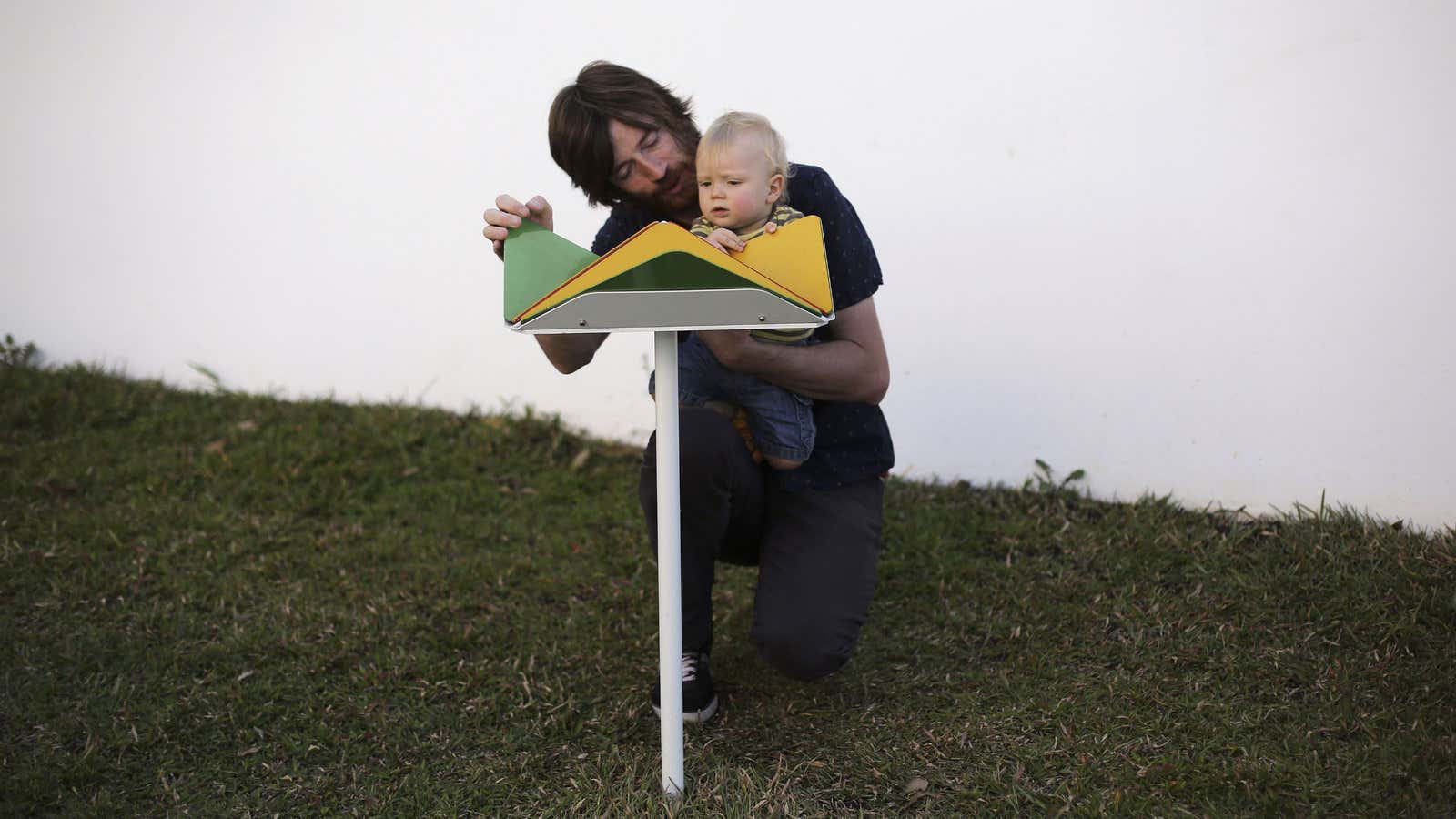On top of the “motherhood penalty,” employers also may dole out a “fatherhood bonus.”
New research shows working dads receive an advantage over working moms when they request flexible hours to care for their kids. Christin L. Munsch, a Furman University sociology professor, coined the term in her new research paper presented at the American Sociological Association’s conference this week.
Dads were more likely than Moms to be granted a work from home request, and they also were deemed to be more likable, Munsch reports in Flexible Work, Flexible Penalties: The Effect of Gender, Childcare and Type of Request on the Flexibility Bias.
Some 69.7% of dads would be likely to be approved for their request, compared to 56.7% of moms. The figures are based on the evaluation of 646 US residents who read a transcript of a conversation between an HR person and a worker who was seeking schedule changes or work from home.
What’s the reason for this gender divide? “People draw on cultural beliefs about gender to help define flexwork and evaluate flexworkers,” Munsch writes, continuing:
“Not only did I find evidence of a fatherhood bonus, I also found that men who made flexplace requests for childcare reasons were perceived as more respectable, likeable, committed, and worthy of a promotion than women who made the same request. Again, this suggests that cultural notations of parenting influence how flextime requests are perceived.”
Munsch’s research also found that workers with children are more likely to be granted flexible work arrangements than those who ask for other reasons. She notes flexible work decisions are “inherently subjective” because they decided case-by-case by supervisors. Men who work full-time while caring for their children may receive what professor Kenneth Kolb called the“progressive merit badge” while women still largely face the “motherhood penalty.”
So this report gives parents some encouraging news and a mess to sort out too. It may make it more likely that dads – like millions of working mothers – may master the diaper change during a conference call moves. But it could help foster a new gender gap as the Washington Post writer put it: “What if flexible work makes men look good and continues to hold women back?”




